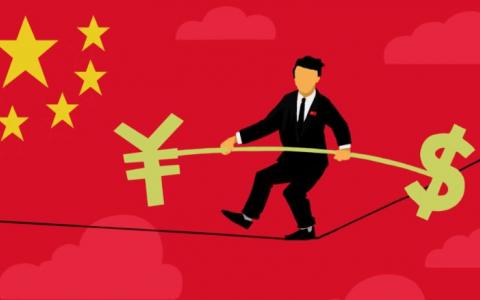
(Bloomberg) After almost two years of tariffs, counter-tariffs, meetings, bad-tempered tweets, and backroom maneuverings, we may finally be on the brink of the first part of a hoped-for trade deal between the U.S. and China. It wasn’t worth it.
President Donald Trump has signed off on an agreement to de-escalate his conflict with Beijing, people familiar with the matter told Bloomberg News. Discussions will focus on the U.S. reducing tariff rates on Chinese imports by as much as half and delaying pending ones, while Beijing will agree to purchase U.S. farm products and do more on intellectual-property theft, officials said.
The S&P 500 index closed up 0.9% at a record high on the news. Naturally, it’s a relief when a nation decides to stop punching itself in the face; how much better if it hadn’t started, though.
From what we can see, there is nothing in this tentative deal that wouldn’t have existed in the absence of the past two years of wrangling. Intellectual property reform has been a long-standing project for President Xi Jinping. China’s first dedicated IP courts were established back in 2014 and have generally dealt fairly with non-Chinese litigants.
Penalties, the most glaring weakness in the post-2014 system, are already being toughened. Perhaps that’s come as a result of U.S. pressure — but it fits just as well with China’s domestic priorities, and the general path of industrializing nations who switch from flouting to protecting IP the moment they start generating some of their own worth protecting.
The phase one deal’s commitments on farm purchases — which, according to one report, won’t even be in writing — were similarly predictable. This was the main plank of the earlier proposed deal that fell apart in May, and since then the devastation of China’s pork herd from African swine fever has left it even greater need of more imported protein. If you think China’s increased appetite for U.S. farm exports is a result of Beijing buckling before American economic might rather than an inevitable outcome of trade economics, then consider Brazil. Chinese leaders have swallowed their pride and made vigorous efforts to mend fences with the South American country, a far less powerful exporter of meat and oilseeds.
That’s not even getting to the concessions being made by the U.S. On the currency front, officials told Bloomberg News that there’ll be an agreement from both sides not to manipulate their currencies. Such an accord is absurd on multiple levels. China doesn’t meet the U.S. Treasury’s own criteria for currency manipulation, though it was placed on its latest list of malefactors for reasons you can more or less sum up as “Just Because.” The U.S., with a half-trillion dollar current account deficit, is an even more unlikely candidate for currency manipulation. Commitments in this area will be meaningless words.
The bigger issue is around what Washington is giving up. The argument that will be made in favor of this deal is that it’s only a phase one agreement, and further benefits will be extracted from Beijing as the process goes on. But the $50 billion-odd commitment on farm purchases will be matched with an agreement by Washington on tariff reductions with a similar-sized price tag, plus further delays to planned tariff increases, the officials told Bloomberg News.
If you thought the trade war was a bad idea in the first place, that’s a welcome development. But if you went into this arguing that Washington was going to extract concessions from the Chinese government using the leverage of its export market, this is a problem. If little has been achieved when leverage was at its highest, even less is going to be achieved once that leverage is ratcheted back down.
Looking at the bullish state of markets, it’s tempting to think that none of this really matters. But it’s worth reflecting on how much of this positive mood is attributable to the more active stance adopted by central banks, which have cushioned a deteriorating geopolitical picture. Global growth in 2019 will be the weakest since the financial crisis of 2008 and 2009, according to the International Monetary Fund, and China and the U.S. will both slow next year. With paralysis at the World Trade Organization, we could be closer to the beginning than the end of the troubles in the global trading system.
Washington began this trade war with no clear idea of its objectives, how it would achieve them, or what sacrifices it was prepared to make. It’s now on the brink of a ceasefire that allows it to quit the field with a few shreds of dignity intact. It would have been far better had the battle never been joined.



